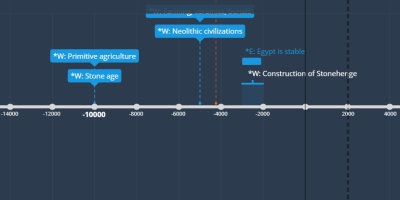Math inquires stop for Rome and those it controls (jan 1, 300 BC – jan 1, 50 BC)
Description:
Rome: The Romans tightened their grip on the old Greek empire, and the mathematical revolution of the Greeks ground to halt. No mathematical innovations occurred under the Roman Empire and Republic. The Romans had no use for pure mathematics, only for its practical applications, and the Christian regime that followed it (after Christianity became the official religion of the Roman empire) even less so. Roman numerals were the dominant number system for trade and administration in most of Europe for the best part of a millennium. According to the Oxford Reference world history timeline, the Roman system of numerals was a handicap to western arithmetic until the end of the Middle Ages. The base 10 system did not use place value, and did not include a zero, so it was a clumsy and inefficientsystem. It was based on letters of the Roman alphabet - I, V, X, L, C, D and M - combined
to signify the sum of their values. Later, a subtractive notation was also adopted, where
VIIII, for example, was replaced by IX. This simplified writing, but made calculation even
more difficult, requiring conversion from the subtractive notation at the beginning of a sum
and then its re-application at the end. Calculations were usually performed with an abacus, based on earlier Babylonian and Greek abaci.
Added to timeline:
Date:
jan 1, 300 BC
jan 1, 50 BC
~ 250 years
